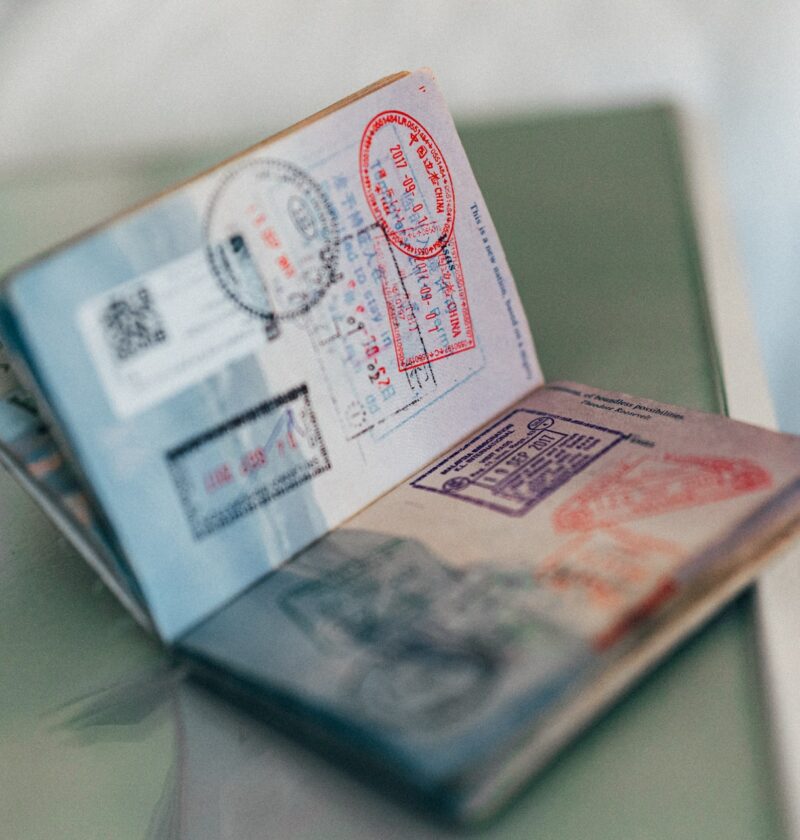For many international students, studying in the United States represents a cherished aspiration. The allure of its globally renowned universities, diverse cultural environment, and excellent career opportunities positions the U.S. as a prime educational destination.
However, the complex maze of immigration rules, particularly the student visa procedure, can appear intimidating. This thorough guide is crafted to simplify these complexities, offering a clear path for prospective students.
The Appeal of Studying in the United States
To appreciate the full picture of the student visa journey, it’s crucial to first recognize the magnetic appeal of the United States as an educational hub for students worldwide. The country’s prestigious Ivy League colleges, vibrant campus life, and the rich amalgamation of academic and cultural experiences set it apart. The opportunity to earn a degree that’s respected globally and to participate in groundbreaking research is a major draw for those seeking an education that transforms and inspires.
Importance of Understanding the Student Visa Process
Obtaining a student visa is more than a procedural necessity; it’s the essential passkey to the revered halls of American universities and a high-caliber education. Thoroughly understanding the process of applying for a student visa is crucial for ensuring a smooth and successful transition from an international student with aspirations to one who achieves success within the U.S. education system. This is why booking an immigration attorney consultation sooner rather than later makes sense.
Types of Student Visas
F Visa Categories
F-1 Visa for Academic Studies
The F-1 visa is the gateway for students pursuing academic programs in the U.S. To qualify, you must have an acceptance letter from a Student and Exchange Visitor Information System (SEVIS)-approved institution. This visa not only allows you to study but also provides opportunities for practical training through Optional Practical Training (OPT).
F-2 Visa for Dependents
Family is an integral part of an international student’s journey. The F-2 visa caters to dependents of F-1 visa holders, ensuring that families can accompany students during their academic pursuits.
M Visa Categories
M-1 Visa for Vocational or Non-Academic Studies
For those opting for vocational or non-academic programs, the M-1 visa is the avenue to explore. Whether it’s technical training or specialized courses, this visa facilitates education outside the traditional academic sphere.
M-2 Visa for Dependents
Similar to the F-2 visa, the M-2 visa is designated for dependents of M-1 visa holders, fostering a supportive environment for those pursuing non-academic studies.
Eligibility Criteria
Meeting the eligibility criteria is the cornerstone of a successful visa application. This involves demonstrating financial capability, maintaining a residence abroad, and proving your intent to return after completing your studies. The documentation required varies based on the type of visa, so meticulous preparation is key.
Applying for a Student Visa
After securing your admission and assembling all required documents, the next crucial step is applying for the visa. This stage entails filling out the Form DS-160, arranging an interview at a U.S. embassy or consulate in your country, and taking care of the visa application fee. It’s important to approach this process with thorough preparation and to present your case with confidence during the interview.
Visa Interview Process
The interview for your visa is a critical juncture in your application journey. It goes beyond merely responding to inquiries; it’s an opportunity to demonstrate your sincere intention to pursue education and comply with the immigration laws of the U.S. You should be ready to talk about your selected academic program, your career aspirations, and how studying in the U.S. aligns with your long-term objectives.
Visa Approval and Denial
Upon a successful interview, you’ll receive your visa approval, marking the beginning of your U.S. academic journey. However, denials can happen, and understanding the reasons is crucial. It could range from insufficient documentation to concerns about your intent to return home post-studies. In case of a denial, you can reapply after addressing the identified issues.
Preparing for Arrival in the U.S.
Excitement builds as you approach your departure date, but thorough preparation is essential. From packing essentials to understanding cultural nuances, ensuring a smooth transition to life in the U.S. is vital. Familiarize yourself with the campus, connect with fellow students, and embrace the adventure that awaits.
Maintaining Status and Compliance
Once in the U.S., compliance with visa regulations is paramount. Attend classes regularly, inform the designated school official (DSO) of any changes, and adhere to the rules governing employment. Staying in good standing ensures a positive academic and immigration experience.
Employment Opportunities on a Student Visa
While studying is the primary focus, the U.S. provides opportunities for on-campus employment. Understanding the guidelines and limitations ensures a harmonious balance between work and studies. Additionally, Optional Practical Training (OPT) post-graduation opens avenues for gaining practical experience in your field of study.
Post-Graduation Options
As you near the completion of your academic journey, exploring post-graduation options becomes crucial. Whether it’s pursuing further studies, engaging in Optional Practical Training (OPT), or seeking employment through an H-1B visa, strategic planning enhances your post-graduation prospects.
Conclusion
Studying in the United States is a transformative experience, and navigating the student visa process is an integral part of that journey. By understanding the visa categories, eligibility criteria, and application process, you pave the way for a seamless transition. Beyond the bureaucratic aspects, embracing the cultural richness, seizing employment opportunities, and planning for the future contribute to a holistic and fulfilling educational experience in the land of opportunities.







